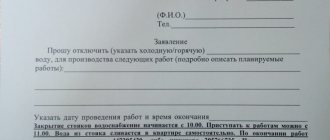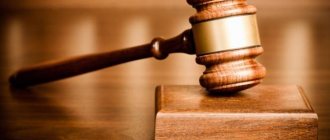Responsibility for maintaining common property in the house
According to the law, the owners of the premises in the house themselves bear responsibility for the maintenance of apartments and common property in apartment buildings (Article 210 of the Civil Code of the Russian Federation, Part 3 of Article 30, Article 39 of the Housing Code of the Russian Federation). They transfer a monthly fee to the management company, which, in turn, undertakes to carry out the corresponding work and provide services for this amount.
Also, the owners of premises in an apartment building pay the management company, RSO and the regional capital repair fund for current and major repairs of common property in the house (part 2 of article 154, article 156, 158, 166, 169 of the Housing Code of the Russian Federation; Decree of the Government of the Russian Federation No. 491 of August 13. 2006).
It turns out that the burden of the main burden of maintaining in proper condition and routine repairs of common property in a residential building falls on the shoulders of the management company (Article 161 of the Housing Code of the Russian Federation). Consequently, the management company must carry out repairs of common property in the house without charging additional fees for this in excess of the monthly payment amount of the housing and communal services consumer.
Therefore, it is important to determine which property in the apartment belongs to the general, and which belongs to the personal use of the owner of the premises in the apartment building.
The need to determine the composition of the common property of premises owners in apartment buildings
4617610
Who should renovate a dorm room?
12.1. major repairs in a dormitory room are required to be made by the owner of the premises, and current repairs are carried out in accordance with the social tenancy agreement (by the owner or possessor).
13.1. You just need to submit an application for recalculation, you can also write a complaint to the housing inspectorate so that they can be held administratively liable.
14.1. According to Part 2 of Article 67 of the Housing Code of the Russian Federation, the tenant of a residential premises under a social tenancy agreement is obliged to carry out routine repairs of the residential premises.
According to Part 2 of Article 65 of the Housing Code of the Russian Federation, the lessor of residential premises under a social tenancy agreement is obliged to carry out major repairs of residential premises.
14.2. Inna, you are not obligated to accept an apartment if it is impossible to live there. Contact the bailiffs and let them resolve this issue with the administration. It can be motivated by the fact that the administration does not actually implement the court decision.
15.1. Oksana. In order to answer your question, you need to know whose fault the fire occurred. This information can be obtained from the fire department that fought the fire.
16.1. The common hot water riser is the engineering system of an apartment building and belongs to the common property of the building. Repairs should be done by the management company, i.e. HOA, HOA, housing cooperative or management company. You need to submit an application to the HOA so that they carry out repair work. If they fail to act, file a claim with the HOA under the consumer protection law. If the HOA responds to the claim with a refusal to carry out repair work, you have the right to go to court with a claim to declare the HOA’s inaction illegal and to impose on the HOA the obligation to carry out repair work on the hot water riser. Also, if the case goes to court, you will be able to recover from the HOA compensation for moral damage (small) and compensation for material damage, if any. Lawyers can provide more detailed advice on your issue after reviewing your issue in detail. Best regards, Dmitry Ermakov.
Common property in the apartment building, which the management company repairs free of charge
Management companies must carry out free repairs of the following equipment that is part of the common property in the apartment building:
- in-house engineering systems of cold and hot water supply , including risers with branches up to the first disconnecting device, collective (common house) water meters, the first shut-off and control valves on the branches of the intra-apartment wiring from the risers, mechanical, electrical, sanitary elements related to these networks ;
- intra-house gas supply engineering systems , including gas pipelines laid from the gas source or the point of connection to the gas distribution network to the shut-off valve on branches to the intra-apartment gas supply system, gas-using equipment (except for gas-using equipment inside the apartment), technical devices on gas pipelines, control and safety valves, gas control system premises, collective (common house) gas meters, gas control unit that records its volume during the production of public services;
- intra-house heating systems , including risers, heating elements, control and shut-off valves, collective (common house) heat meters, and other equipment related to these networks;
- in-house power supply systems , including incoming cabinets, input distribution devices, protection, monitoring and control equipment, collective (common house) electricity metering devices, floor panels, lighting installations in common areas, electrical installations of smoke removal systems, automatic fire alarms of internal fire water supply systems, cargo , passenger and fire elevators, automatically locking devices for apartment building entrance doors, cables from the external border to individual, general (apartment) electricity meters, and other electrical equipment related to these networks (RF PP No. 491).
Management companies will pay fines to residents for incorrect calculation of utility bills
392701
Municipal apartment: rights and obligations of residents
Despite the housing privatization program, which has been going on in the Russian Federation for decades, quite a lot of apartments are still owned by municipalities (municipal housing).
There are several types of such apartments:
- Provided housing to those in need on general terms under a social tenancy agreement;
- Provided to persons who, for some reason, are forced to alienate their residential premises to the municipality;
- Reserve housing, owned by municipal authorities, provided to citizens for temporary residence for up to two years (for example, during the repair of emergency housing, etc.);
- Municipal real estate provided to civil servants (municipal employees) for the duration of their duties.
The majority of municipal housing, of course, consists of apartments transferred for use to citizens for hire. In accordance with the Civil and Housing Codes, social rental agreements are concluded between individual citizens and owner municipalities, and apartments are transferred for temporary use.
Families and citizens living on social rent are not the owners of the apartment and do not have the right to bequeath, sell, or inherit it; otherwise, the list of rights of tenants is quite wide. These rights are defined in Art. 154
Housing Code and include:
- Possibility to move other people into the apartment (taking into account the standard living space per person). At the same time, children and spouses can be accommodated (registered) without regard to such a standard.
- Sublease an apartment (or part of it), that is, let in tenants (tenants) on a contractual basis in accordance with civil law.
- Allow temporary residents to live in the apartment.
- Require the homeowner (municipal) to carry out timely major repairs, participate in the maintenance of common property and the proper provision of utilities.
Tenants may have other rights provided for both in the Civil Code of the Russian Federation and in the rental agreement itself, and also have a number of responsibilities:
- use the apartment only for its intended purpose;
- do routine repairs;
- maintain the normal condition of the apartment;
- pay for housing itself and utilities;
- promptly inform the homeowner about changes in the grounds and circumstances related to the apartment rental agreement.
Additional responsibilities of the employer in accordance with Art. 678 of the Civil Code of the Russian Federation is to ensure the safety of the apartment, carrying out reconstruction/rearrangement only with the permission of the owner. The need for timely payments for housing is especially emphasized.
Equipment that the management company should not repair for free
The management company is not obliged, at its own expense, to carry out free repairs of the following equipment in the apartments of premises owners in apartment buildings:
- individual metering devices for hot and cold water, gas, electricity;
- gas and electric stoves;
- plumbing equipment in the apartment (faucets, taps, bathtubs, sinks, toilets, water heaters);
- pipes and bends installed on branches from risers after the shut-off device or shut-off and control valve;
- intercoms in the apartment;
- electrical cables, sockets in the apartment;
- other equipment not included in the common property , intended to serve only one apartment.
What does the law say?
Article No. 768 of the Civil Code specifies the following responsibilities of persons renting housing:
- The living space must be used exclusively for its intended purpose and safety must be ensured;
- It is prohibited to make redevelopment or other changes that are not agreed upon with the legal owner;
- The tenant is forced to pay according to the terms of the contract plus for utilities (what if this is provided for in the agreement with the apartment owner).
But we are more interested in the questions: should the tenant pay for major repairs? The Housing Code (Articles No. 169 and No. 158) states that payment is mandatory, and it is transferred to the shoulders of the real owner.
The above makes it clear that tenants may not pay for major repairs. The same applies to municipal property in which a person lives on the basis of a social tenancy agreement. Even if you find a receipt (invoice) in the mailbox, it should be handed over to the direct owner of the living space.
How to determine the responsibility for repairs of the owner and management company
In order to decide whether repairs of equipment in the apartment of the owner of the premises in an apartment building should be carried out for a fee or free of charge, it is necessary to determine the internal boundaries of the utility systems , which delimit responsibility for their operation between the owner of the property and the management company.
As you already understood from the lists above, for example, branches from hot and cold water supply risers after shut-off and control valves, along with this element itself in the owner’s apartment, as well as plumbing, are not included in the operational responsibility of the management company. Therefore, the management company should not repair this equipment for free.
To avoid misunderstandings and disputes, we recommend that you fix the boundaries of operational responsibility between your management company and the owners of premises in the apartment building in a management agreement .
But if there is an accident or breakdown of equipment in the owner’s apartment, which is part of the common property, then the management company is obliged to make repairs free of charge (Decision of the Supreme Court of the Russian Federation dated November 30, 2011 No. GKPI11-1787).
You should also pay attention that if the need to repair equipment inside the apartment is caused by improper provision of utilities , then the owners of the premises can demand from their management company compensation for losses incurred or expenses for its repair or repairs at the expense of the Criminal Code (clauses 149, 151 of the Decree of the Government of the Russian Federation No. 354 dated 05/06/2011).
Division of powers in the housing and communal services sector
73520
Who should do repairs in the owner’s apartment?
I live in an apartment under a social lease agreement. It hasn't been renovated for a long time. Who should do it, the landlord or me? I don't have any extra money.
In an apartment transferred under social rent, the landlord must carry out routine repairs.
- § Para. a) clause 4 of the Standard Social Rental Agreement for Residential Premises (approved by Decree of the Government of the Russian Federation of May 21, 2005 No. 315)
Further routine repairs must be carried out by the employer. These are the following types of work:
- whitewashing, painting and pasting of walls, ceilings;
- painting floors, doors, window sills, window frames on the inside, radiators;
- replacement of window and door fixtures;
- repair of internal engineering equipment (electrical wiring, cold and hot water supply, heat and gas supply).
However, the frequency of this work is not specified in the current legislation (according to the old Rules and Standards for the Technical Operation of the Housing Stock, current repairs were supposed to be carried out every 5 years). If the performance of these works is caused by a malfunction of elements of common property or equipment in an apartment building or is associated with major repairs of the house, then they are carried out at the expense of the lessor. Upon termination of the social tenancy agreement, the tenant must make repairs to the residential premises or pay its cost to the landlord. As for major repairs, the lessor is obliged to carry them out.
- § Para. c) clause 5 of the Model Agreement
Major repairs of an apartment concern its structural changes, for example, replacing the floor, restoring the structures of walls and ceilings, etc. If the landlord does not fulfill his obligations to carry out major repairs in a timely manner, then the tenant has the right to demand a reduction in rent for residential premises or compensation for losses caused by improper fulfillment of his obligations. responsibilities of the landlord.
- § Para. d) clause 6 of the Model Agreement?








